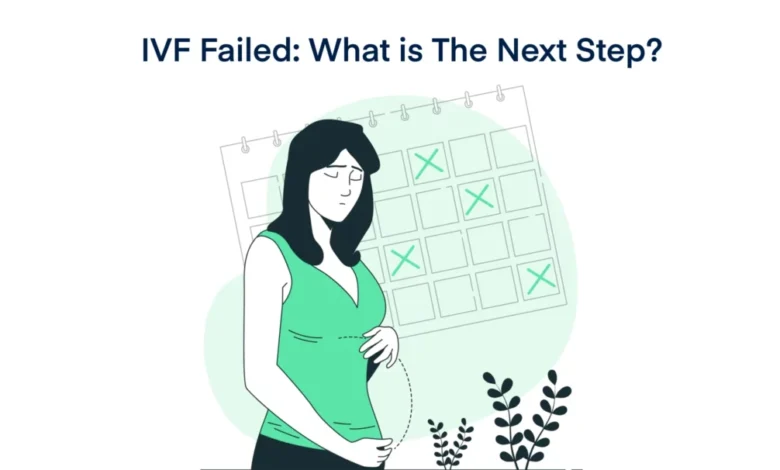What To Do After IVF Failure: Recovery, Treatments, and Tests

In vitro fertilization is a common assisted reproductive technology used by couples struggling with infertility. It involves fertilizing eggs and sperm in a lab and transferring the resulting embryos into the uterus. Seeking support from professionals, such as fertility specialists, counselors, and support groups, can help with managing the emotional impact of IVF. Here’s what you can do after experiencing IVF failure to help with recovery and increase your chances of success in future attempts:
Recovery Process
Here are a few steps that you can take in your recovery process after a failed IVF attempt:
Seek Support
Talk to your partner, family, friends, or a professional counselor about your feelings. Join a support group for couples going through similar experiences. It can be helpful to talk to others who understand what you’re going through and may provide emotional support.
Take Care of Yourself
During this time, prioritize self-care. Give yourself permission to feel emotions such as anger and sadness and take the time to process them. Eat well and get enough rest for your body to recover properly. Engage in activities that bring you joy, such as exercise, hobbies, or spending time with loved ones.
Treatments for IVF Failures
The next step after experiencing a failed IVF cycle is to discuss treatment options with your fertility specialist. Testing will be done to determine the cause of the failure, and a new treatment plan will be recommended based on these results. Some possible treatments for IVF failures include:
Receptive Endometrium Preparation
This involves preparing the uterus for implantation by addressing any underlying issues that may have contributed to the failed IVF. This can include hormonal imbalances, uterine abnormalities, or inflammation. A specialist will help you create a favorable environment for the embryo to implant and grow successfully.
Hormone Therapy
Hormone therapy is used to balance hormones and improve egg quality. This involves taking estrogen, progesterone, or gonadotropin to stimulate egg production and regulate ovulation. When hormone levels are regulated, it may increase the chances of a successful IVF cycle. Your fertility specialist will carefully monitor the timing and dosage of these medications.
Test for IVF Failure
If you have experienced a failed IVF cycle, your fertility specialist may recommend additional testing to determine the cause. This may include blood tests to assess hormone levels and imaging tests to evaluate the uterus and ovaries. Some of the tests for IVF failure include:
Hysteroscopy
This is a procedure that uses a thin, lighted tube inserted through the cervix to examine the inside of the uterus. It can help identify structural abnormalities or scarring that may interfere with embryo implantation. The hysteroscopy may also be used to remove any abnormal tissue or blockages, improving the chances of a successful pregnancy.
Endometrial Receptivity Assay (ERA)
This test evaluates the receptivity of the uterine lining for embryo implantation. It involves taking a small biopsy of the endometrium and analyzing gene expression patterns to determine the optimal time for embryo transfer. The ERA test may be recommended for women who have had multiple failed IVF cycles or recurrent pregnancy loss.
Genetic Testing
Genetic testing can help identify any underlying genetic issues that may have contributed to the failed IVF cycle. This involves screening for chromosomal abnormalities, carrier screening for genetic diseases, or testing for specific genetic markers associated with infertility.
Seek Professional Help for IVF Failure
Fertility specialists and other healthcare professionals will help you every step of the way during your IVF treatment. Their in-depth knowledge and experience in reproductive medicine can provide valuable insights into the possible causes of your failed IVF cycle. They will develop a personalized treatment plan based on your specific needs and medical history. Seek professional help if you have experienced multiple IVF failure attempts or are concerned about your chances of success.



